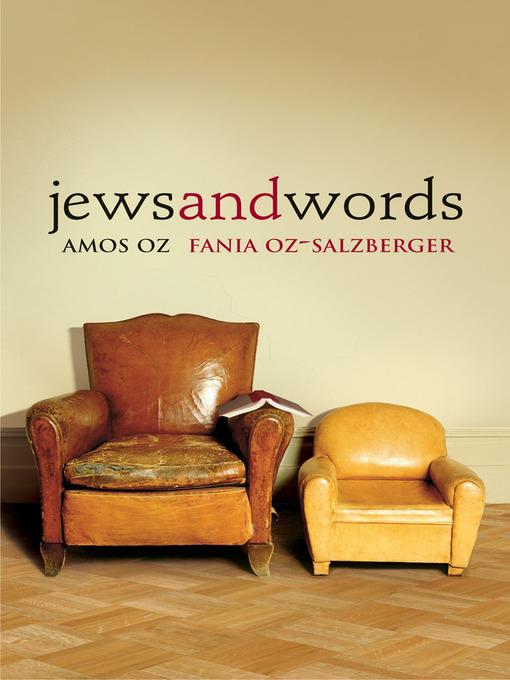
Jews and Words
کتاب های مرتبط
- اطلاعات
- نقد و بررسی
- دیدگاه کاربران
نقد و بررسی

September 17, 2012
These four long essays—really more of a free-flowing conversation between the noted Israeli novelist and his daughter, a historian—focus primarily on the Jews as “a nation only by virtue of its texts,” from the Bible to the work of contemporary Israeli poet Yehuda Amichai—and the interpretations and argumentations that flow from them. The authors, secular Jews who are lovers of the Hebrew Bible, note that “Genesis, Isaiah, and Proverbs are our pyramids... our Gothic cathedrals... undemolished in the flow of time.” They look specifically at the role of “vocal women,” such as Eve and Lilith, in the Bible and biblical legends. The authors also delve into how the classic Jewish narratives treat time and timelessness, as when a midrash (rabbinic pedagogic story) achieves the “brazen transcendence of time” by having Moses learn about the teachings and terrible fate of Rabbi Akiva, who lived more than a millennium later. A spirited epilogue looks at the strong Jewish tradition of irreverence toward most everything, including God, and cites another novelist, who said that contemporary Judaism’s “rendezvous with Western humanism is a fateful one, formative... irrevocable.” Oz and Oz-Salzberger’s discussion is sometimes disjointed and rambling, but far more often playfully instructive; it will appeal to lay readers interested in a nonreligious Judaism based on contemporary readings of traditional and more modern Jewish texts.

September 15, 2012
An Israeli novelist father (Scenes from Village Life, 2012, etc.) and historian daughter (Israelis in Berlin, 2001, etc.) argue that words are the most crucial ingredients in the long history of Jewish culture. In a tone that is genial and modest, father and daughter--both professors (Literature/Ben Gurion Univ., and History/Univ. of Haifa, respectively)--only occasionally disagree in this disquisition about the significance and relationship of words, history, religion and culture. After establishing their fundamental and shared beliefs--they are secular Jews who value the Bible not for its historical or religious meanings but for "its splendor as literature"--they establish their thesis (the printed word has unified and identified Jews) and begin marshaling support. They talk about the importance of the "teacher-parent module" in Jewish families and traditions, recognize that debate and dispute are part of the reading process, and repeatedly state that the fiction of the Bible communicates great human truths. As the authors recount various Bible tales in support of their thesis, they devote an entire chapter to powerful and otherwise significant women (from Eve to Tamar), and they note how swiftly, once liberated, Jewish women rose in academe. Another compelling section deals with the concept of time (cyclical, linear), and the authors declare that Jews have their "backs to the future and [their] faces toward the past." They also deal with the term "Judaism," observing that it began as a term of opprobrium before it became more common, and they note the immense significance of individual names in the Bible. A provocative mixture of scholarship, sly observation and wry writing that often glistens.
COPYRIGHT(2012) Kirkus Reviews, ALL RIGHTS RESERVED.

Starred review from November 15, 2012
Oz and his daughter, a historian, combine their considerable talents to examine the role words and language have played in binding the Jewish people to their heritage. Although neither is religious (nor, for that matter, a believer), both find rich meaning in the words of the Bible (as well as the commentaries that followed). They theorize that the reason Judaism has survived is more about texts than faith, with controversy built into them from the start. Exhibiting eye-popping feats of literary scholarship and stunning swoops into the minds of writers, readers, and rabbis, the authors clearly relish the richness of their topic. The familar subjects are here (the role of humor in Jewish writing), but the duo goes much further than expected. What about the important part questions have played in the writings, starting with Genesis? A wonderful chapter recounts the role of women writers and shows how the author of Song of Songs might have been female. The text grapples with what it means to be a Jew, especially with God optional, and how Judaism might never have survived without the decision of fathers and mothers to impress the importance (and sweetness) of learning on children early and often. This is a book to read, think about, and discuss because, as the ending notes, every time we read a text, we author it in our own image. (Reprinted with permission of Booklist, copyright 2012, American Library Association.)

























دیدگاه کاربران